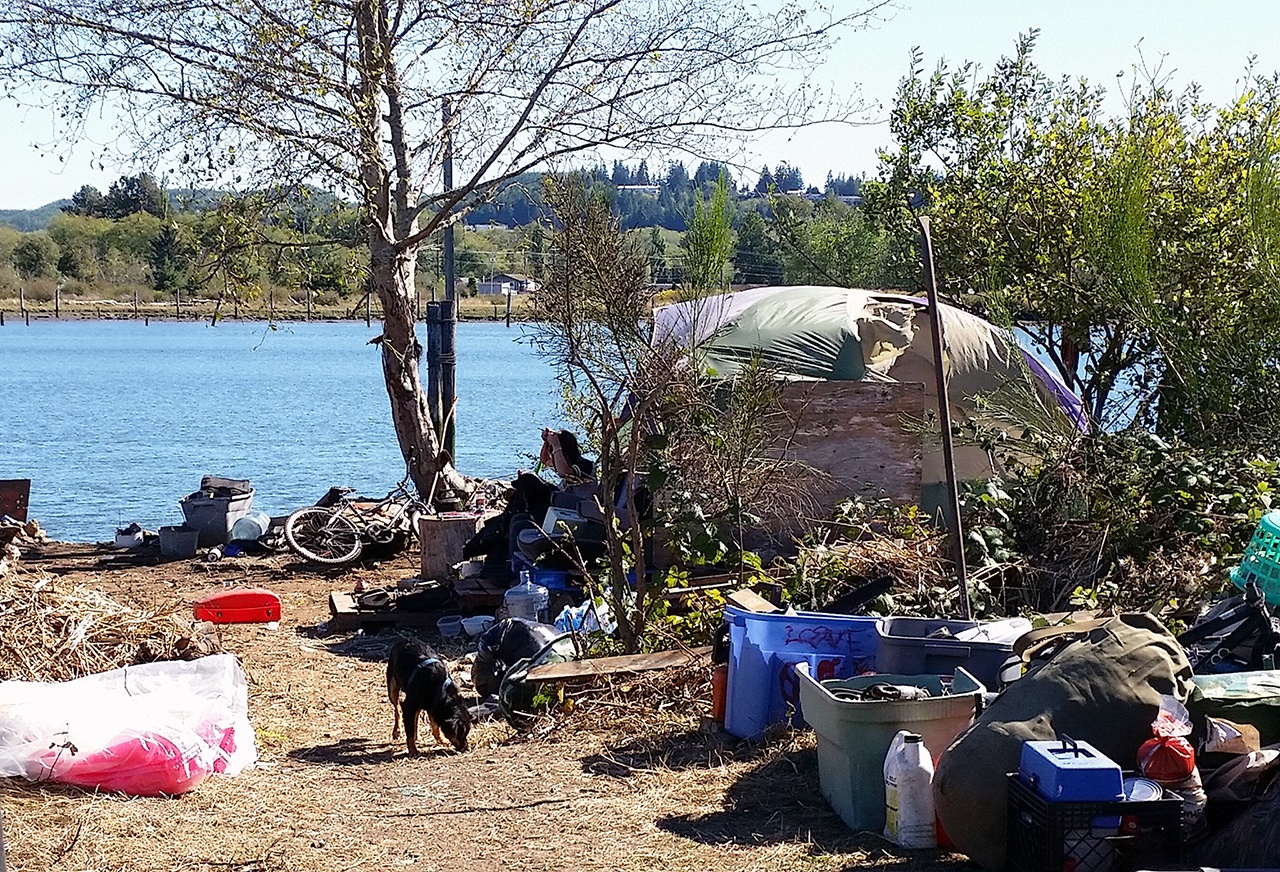A statewide funding source considered crucial for dealing with homelessness is slated to start shrinking next year, according to a speaker at Tuesday’s meeting of the Grays Harbor County Housing Coalition.
“Our top priority is to make sure this doesn’t happen,” Kate Baber, a policy and advocate specialist with the Washington Low Income Housing Alliance, told members of the coalition that brings together area professionals and volunteers who deal with the needs of local homeless people and those who find it difficult to obtain housing. They are devising ways to most effectively carry out the county’s 10-Year Plan to Address Homelessness. The original plan created in 2005 was revised last year.
Baber’s group will propose the state’s Document Recording Fee, now $58 collected when title and ownership of a real property is transferred and the transaction recorded by county governments, be made permanent and even increased. Baber didn’t say how much of an increase Seattle-based WLIHA would propose to legislators.
“Homelessness is at emergency levels in every corner of the state,” Baber said. “This funding has a significant impact on who’s homeless.”
Sixty percent of the money collected goes to the counties where the recording took place and the remaining 40 percent is given to the state.
Grays Harbor County budgeted for this source to bring $300,000 in revenue during 2016 for homeless housing. Another $65,000 is expected this year for affordable housing.
As of Tuesday, the homeless housing program in Grays Harbor has accumulated $1.5 million in cash and investments over the years. Affordable housing has $685,000 in cash and investments, said Brenda Sherman, the county’s chief deputy auditor.
“Both totals can change frequently, even daily,” Sherman explained.
Grants are included in the accumulated funds so the amounts don’t reflect revenue from recording fees alone.
The goal is to successfully lobby for a change in the law before the fee for such services begin decreasing in June 2017 from $58 to $48 for each transaction recording. The fee is scheduled to drop even more significantly in June 2019, from $48 to $18.
With the $48 fee, Grays Harbor County is estimated to receive $1.117 million for homelessness programs from 2017-2019. The amount would fall to just $419,000 from 2019-2021 if the money allocated for such assistance drops to $18 per document.
In Grays Harbor County, these reductions would translate into 224 people not being housed. The number of people statewide not housed would rise by more than 22,500, Baber added.
WLIHA also recommends elimination of the law’s 45 percent mandated use of state funds for a specific purpose — such as private rental housing payments — and seeks streamlining and other improvements in auditing and reporting by counties and the state.
“We want to make sure it passes this year,” Baber explained.
WLIHA is also advocating full funding of these homeless safety net programs by state legislators during the 2017 session: Housing and Essential Needs; Aged, Blind and Disabled; Medical Care Services; and, Supplemental Security Income Facilitation Services. The group seeks approval of the prohibition of discrimination based on a renter’s source of income as well.



